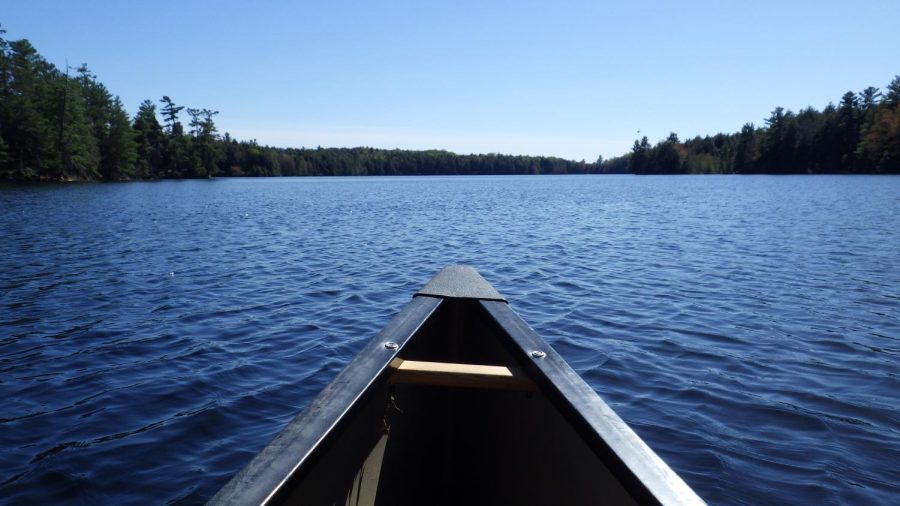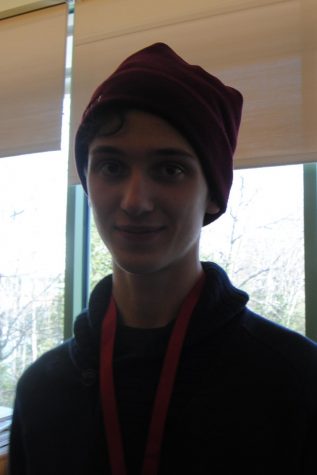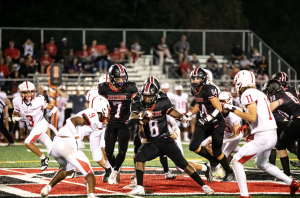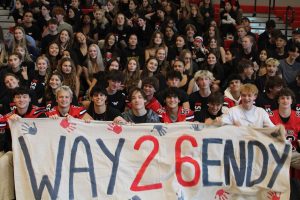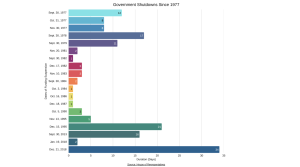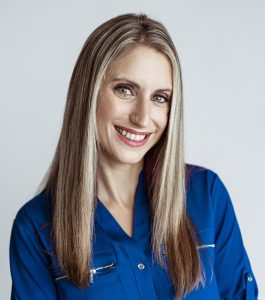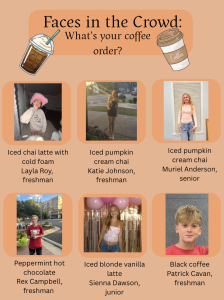Beyond the blue and red
How civility helps, not hampers, freedom of expression
February 20, 2020
When I decided to attend Conserve School, a one-semester program for environmental leadership, I anticipated that I would gain invaluable skills as a naturalist and environmental activist. However, I never could have guessed in a million years that I would change my entire perspective on politics, and in the process, become a steward of diversity and inclusion.
Growing up in a progressive household in one of the country’s bluest districts, and volunteering for more Democrats than I can count on my fingers, my political ideals were set in stone by sophomore year. When I stepped out of the tiny airport terminal in northern Wisconsin to attend Conserve School, I was greeted by a howling wind and by a boy in overalls, who grabbed one of my bags and stuck out his other hand. Wyatt Moser, a conservative teenage farmer from a rural Illinois town, would become my closest Conserve School friend.
We talked the whole ride from the airport, soon turning to politics. Although we were initially disappointed about being on opposite ends of the spectrum, we were excited to learn about each other’s lives. He told me how people in his town were fed up with a government that ignored them to campaign in Chicago and Springfield. He told me about the first rifle he received from his dad and their annual Thanksgiving father-son hunting trips. I told him about the tangible excitement of life minutes from D.C., and the inspiration I drew from the epicenter of government.
While many of our values were opposite, we enjoyed each other’s company too much to let that be a barrier to friendship. In this way, civility did not stand in opposition to our democratic discourse, but instead, anchored it. Between classes, and relaxing near the dorm fireplace, we left no subject undiscussed, no matter how controversial. We trusted each other enough to reveal potentially offensive viewpoints. At one of the most liberally-minded schools in the country, I was beginning to understand the foundations of conservative America through my unexpected friendship.
I still remember my journey with Wyatt into the forests surrounding Conserve School’s campus. As the forest grew denser around us, the trees became hulking and gnarled, and the undergrowth impenetrable, reminiscent of a time before pioneers and loggers tamed much of the American Wilderness. As we ventured further, massive snowbanks blocked the path, and we had to be careful where we placed our boots, lest we sink into a tree-well, or worse, stray off the faint path pointing us to our destination of Fisher Lake. Sharing this experience together, we formed a bond that broke down the economic, political, and philosophical barriers that separated our backgrounds for good. Afterward, any danger we once saw in open discourse seemed inconsequential. Our lives were anchored in a shared experience, and a mutual appreciation for the beauty of the wilderness, even if this manifested in different ways for each of us politically.
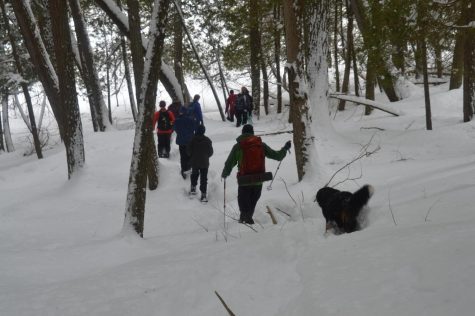
Unfortunately, while our relationship was strong, many at Conserve School weren’t. The small minority of conservative students often felt harassed by progressives, whose approach to “openness” they saw as condescending and exclusionary. Although I agreed with the actual views of my fellow urbanites, I was sickened by their approach. When several of my conservative friends were accused of racism for expressing support for a Republican, I realized I needed to engage them thoughtfully. These students were attending a progressive school to broaden their perspectives; the least my progressive peers could do was to acknowledge that vulnerability with respect. Initially, I was called an enabler. Eventually, however, my commitment to my own progressive values helped make it clear that my pleas for a perspective shift were genuine.
Conserve School reinforced my belief in providing equal access to opportunity, ending discrimination, and preserving the environment. However, I realized the critical importance of joining politically diverse communities, to preserve freedom of expression when it comes to advancing such causes. After all, safeguarding diversity and promoting inclusion doesn’t just mean embracing differences when it’s comfortable. It also means making an effort to preserve space for contrasting, and often frustrating, views and perspectives.



